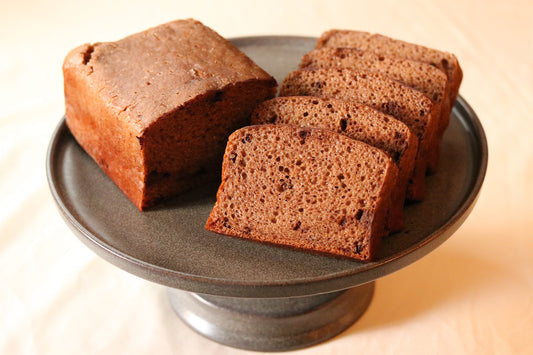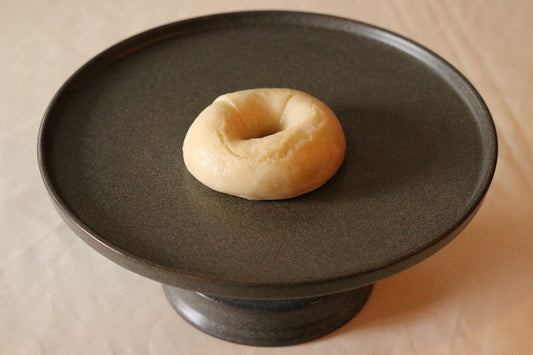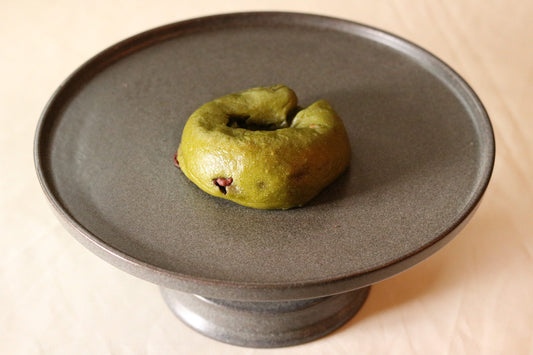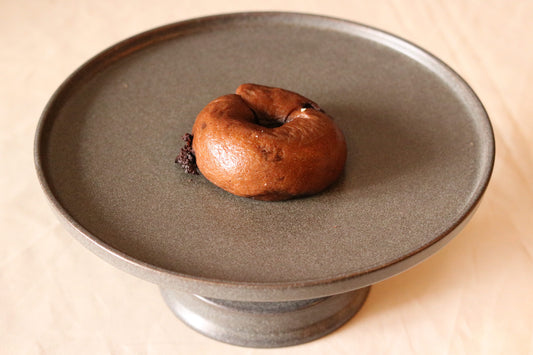Does a gluten-free diet affect body odor? Measures to improve it
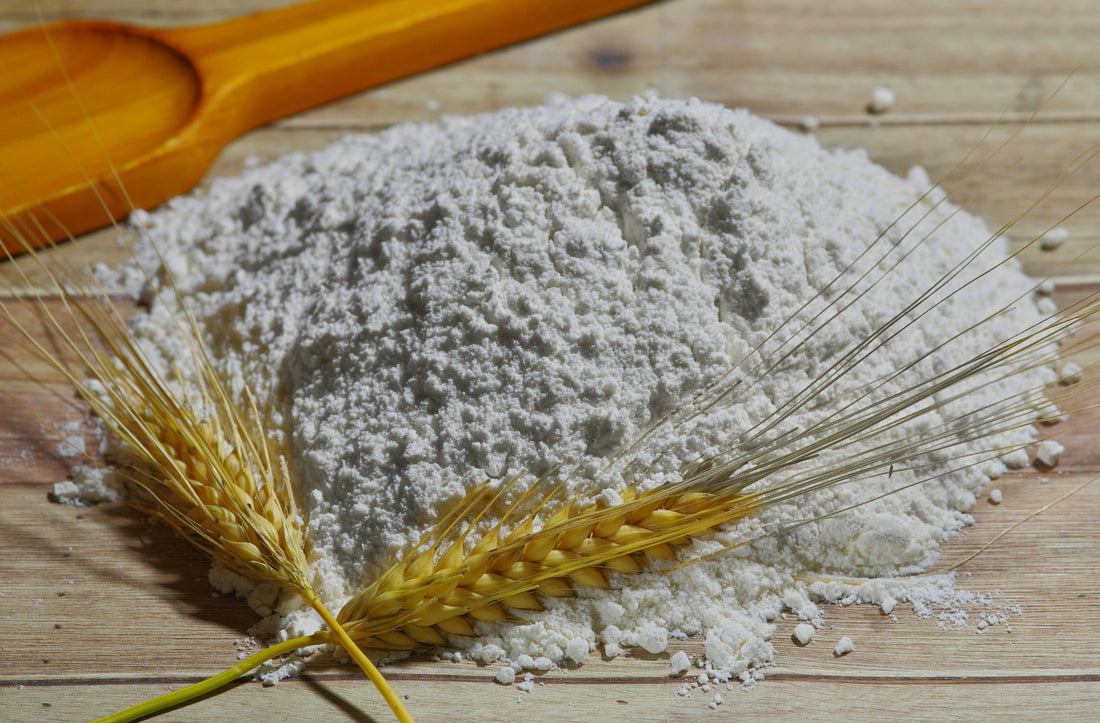
The effect of gluten on body odor

The relationship between gluten and the intestinal environment
Gluten disrupts the intestinal flora
Gluten is a type of protein found in wheat, barley, rye, and other grains, and is found in foods such as bread and pasta. Ingesting gluten can affect the intestinal environment. Gluten is difficult to break down with human digestive enzymes, and once it reaches the intestines, it can disrupt the balance of the intestinal flora.
It is important for the intestinal flora to maintain a balance between good and bad bacteria, but consuming gluten increases the number of bad bacteria, disrupting the intestinal environment. Disruption of the intestinal flora can be the cause of body odor. When the intestinal environment deteriorates, bad bacteria increase, making it easier for harmful substances to be produced. These harmful substances are absorbed by the intestinal tract, circulate throughout the body, and are excreted from the body in the form of breath, sweat, and skin gases, causing body odor.
Causes leaky gut
When gluten adheres to the intestinal mucosa, it increases intestinal permeability. This can lead to leaky gut, a condition in which substances that should not be absorbed by the intestinal tract leak out. When gluten causes inflammation in the intestinal mucosa, the intestinal barrier function is weakened, allowing undigested food, bacteria, toxins, and other substances to leak out.
When leaky gut occurs, harmful substances enter the body, causing inflammation throughout the body. This inflammation can be the cause of body odor. Furthermore, harmful substances that enter the body due to leaky gut should be broken down by the liver, but if the liver is overloaded, they will not be broken down and will accumulate in the body. When these harmful substances are excreted from the body in the form of sweat or skin gases, they cause body odor.
The link between gluten and metabolism

Gluten may also affect metabolism. When gluten is ingested, insulin secretion is stimulated, making blood sugar levels more likely to rise. Insulin is a hormone that lowers blood sugar levels, but excessive secretion can promote fat accumulation. Insulin also has the effect of causing inflammation in the body, so gluten intake may lead to chronic inflammation. Chronic inflammation can cause a slowdown in metabolism.
When metabolism slows, waste products tend to accumulate in the body, which can lead to body odor. When waste products accumulate in the body, they are excreted from the body in the form of sweat and skin gas, resulting in a stronger body odor. As mentioned above, gluten affects the intestinal environment and metabolism, and can be a cause of body odor. By limiting your gluten intake, you may be able to improve your intestinal environment, metabolism, and reduce body odor. However, because the effects of gluten vary greatly from person to person, it is important to determine the amount that is right for you.
Gluten-induced metabolic slowdown
Gluten can slow down metabolism. When gluten is ingested, it stimulates insulin secretion, making blood sugar levels more likely to rise. Insulin is a hormone that lowers blood sugar levels, but excessive secretion can promote fat accumulation. Gluten also has the effect of causing inflammation in the body.
Chronic inflammation causes a slowdown in metabolism. When metabolism slows down, waste products tend to accumulate in the body, which can lead to body odor. Furthermore, gluten also disrupts the intestinal environment. When the intestinal environment is disrupted, the balance of the intestinal flora is disrupted, making it easier for harmful substances to be produced. These harmful substances circulate throughout the body, causing a slowdown in metabolism. When metabolism slows down, waste products tend to accumulate in the body, which can lead to body odor.
Accumulation of waste products and their effect on body odor
When metabolism slows, waste products tend to accumulate in the body. Waste products are substances that are no longer needed by the body. When waste products accumulate in the body, they can cause body odor. Waste products contain harmful substances such as ammonia and acetone. These harmful substances are excreted from the body through sweat and skin gases, which causes body odor.
Ammonia, in particular, can cause strong body odor when mixed with sweat. Also, when waste products accumulate in the body, it puts an increased strain on the liver. The liver is responsible for breaking down waste products, but if too much waste accumulates, liver function declines. When liver function declines, waste products are not broken down and accumulate in the body, causing body odor.
Gluten and types of body odor

Gluten can cause different types of body odor. Below we explain the types of body odor that may be related to gluten.
Sweat odor, middle-aged oily odor, aging odor, etc.
Gluten may be a cause of sweat odor. Ingesting gluten slows metabolism and makes it easier for waste products to accumulate. These waste products contain harmful substances such as ammonia, which, when mixed with sweat, can cause strong body odor. Gluten may also be a cause of middle-aged body odor and body odor associated with aging. Middle-aged body odor is a body odor characteristic of middle age, while body odor associated with aging is a body odor characteristic of the elderly. Ingesting gluten causes inflammation in the body and promotes sebum secretion. Excessive sebum secretion oxidizes, causing middle-aged body odor and body odor associated with aging.
Gas odor produced by intestinal bacteria
Gluten may be the cause of gas odor produced by intestinal bacteria. Ingesting gluten disrupts the intestinal environment and upsets the balance of the intestinal flora. When the balance of the intestinal flora is disrupted, harmful bacteria increase, making gas more likely to be produced. The gases produced by intestinal bacteria contain harmful substances such as hydrogen sulfide and methyl mercaptan. These harmful substances are absorbed by the intestinal tract, circulate throughout the body, and are excreted from the body in the form of exhaled breath, sweat, and skin gas.
When gas produced by intestinal bacteria is released from the body, it causes strong body odor. In addition, gas produced by intestinal bacteria also promotes intestinal motility. When intestinal motility is promoted, gas is more easily released from the intestinal tract. When gas produced by intestinal bacteria is released from the intestinal tract, it causes flatulence. Farting can cause strong body odor, so care should be taken.
The relationship between gluten-free diets and body odor

Improving the intestinal environment by going gluten-free
Eating a gluten-free diet may improve your intestinal environment. Because gluten disrupts the intestinal environment, not consuming gluten helps to balance the intestinal flora. When the intestinal flora is balanced, harmful bacteria decrease and beneficial bacteria increase. Beneficial bacteria work to improve the intestinal environment. Increasing beneficial bacteria improves the intestinal environment and suppresses the production of harmful substances that cause body odor.
In addition, beneficial bacteria also boost immune function, which can be expected to suppress inflammation that causes body odor. Furthermore, practicing a gluten-free diet may improve the intestinal barrier function. Gluten has the effect of weakening the intestinal barrier function, so not consuming gluten improves the intestinal barrier function. When the intestinal barrier function is improved, the absorption of harmful substances is suppressed, and substances that cause body odor are less likely to accumulate in the body.
Improved metabolic function and waste elimination

Eating gluten-free may improve metabolic function. Gluten has the effect of slowing down metabolism, so not consuming gluten improves metabolic function. Improved metabolic function allows waste products to be efficiently excreted from the body. Waste products contain harmful substances that cause body odor. By efficiently excreting waste products, harmful substances that cause body odor are less likely to accumulate in the body.
In addition, improved metabolic function makes it easier to burn fat in the body and reduces the secretion of sebum, which causes body odor. Furthermore, practicing a gluten-free diet may improve liver function. The liver is responsible for breaking down waste products. Gluten increases the burden on the liver, so not consuming gluten reduces the burden on the liver. Reducing the burden on the liver allows waste products to be broken down more efficiently, and harmful substances that cause body odor are less likely to accumulate in the body.
Possible temporary change in body odor
Temporary increase in body odor due to detoxification effect
When you start a gluten-free diet, your body odor may temporarily become stronger. This is related to the detox effect of going gluten-free. When you start a gluten-free diet, waste products accumulated in the body are expelled all at once, which can cause your body odor to become stronger. The increase in body odor due to the detox effect is temporary. Once the waste products accumulated in the body are expelled, your body odor will gradually improve. However, the increase in body odor due to the detox effect varies greatly from person to person, so it cannot be generalized. To prevent an increase in body odor due to the detox effect, it is important to drink plenty of water. Drinking plenty of water will help to efficiently expel waste products. Exercising in a way that promotes sweating can also help prevent an increase in body odor due to the detox effect.
Changes in body odor due to improvements in the internal environment
By continuing to go gluten-free, your internal environment may improve, which may result in a change in body odor. An improved internal environment suppresses the production of harmful substances that cause body odor, improving body odor. Furthermore, as your internal environment improves, sebum secretion may be suppressed, potentially improving middle-aged oily odor and body odor associated with aging. However, improvements in your internal environment vary from person to person. Even if you continue to go gluten-free, your body odor may not improve.
If your body odor doesn't improve, it's recommended that you consult a doctor, as other factors may be involved. Also, improving your internal environment takes time. Body odor won't improve immediately after starting a gluten-free diet. It can take several months or even years for your internal environment to improve, so it's important to be patient.
Measures to improve body odor

Improving your diet
Improving your diet is important to improve body odor. Many of the harmful substances that cause body odor are ingested through food, so you can improve body odor by reviewing your diet. Effective ways to improve your diet include consuming antioxidant foods, incorporating alkaline foods, and using fermented foods to improve your intestinal environment.
Intake of antioxidant foods
Antioxidant foods work to prevent oxidation in the body. Since oxidation in the body promotes the production of harmful substances that cause body odor, consuming antioxidant foods can improve body odor. Antioxidant foods contain vitamin C, vitamin E, polyphenols, etc. Vitamin C is found in large amounts in citrus fruits and green and yellow vegetables.
Vitamin E is found in large amounts in nuts and vegetable oils. Polyphenols are found in large amounts in red wine, cocoa, and green tea. By actively consuming these antioxidant foods, you can prevent oxidation in the body and improve body odor. However, excessive intake of antioxidant foods can disrupt the balance in the body, so it is important to consume them in moderation.
Incorporating alkaline foods
Alkaline foods help prevent acidification in the body. When the body becomes acidic, the production of harmful substances that cause body odor is promoted, so incorporating alkaline foods can help improve body odor. Alkaline foods include vegetables, fruits, and beans. Most vegetables are alkaline foods. Green and yellow vegetables in particular are highly alkaline, so we recommend consuming them frequently. Most fruits are also alkaline foods, but citrus fruits are highly acidic, so you should be careful about the amount you consume. Beans are alkaline foods rich in protein. Soy products such as tofu, natto, and miso are particularly alkaline, so we recommend consuming them frequently. However, processed foods may contain highly acidic seasonings, so caution is required.
Fermented foods to improve your intestinal environment
Fermented foods, which improve the intestinal environment, have the effect of improving body odor. Fermented foods contain beneficial bacteria such as lactic acid bacteria and bifidobacteria, which work to improve the intestinal environment. By improving the intestinal environment, the production of harmful substances that cause body odor is suppressed, improving body odor.
Fermented foods include yogurt, natto, miso, and pickles. Yogurt is rich in lactic acid bacteria and is expected to have the effect of regulating the intestinal environment. Natto contains natto bacteria, which works to increase the number of good bacteria in the intestines. Miso contains koji mold, which is expected to have the effect of regulating the intestinal environment. Pickles contain lactic acid bacteria, which is expected to have the effect of regulating the intestinal environment. However, pickles are high in salt, so you should be careful about the amount you consume.
Reviewing lifestyle habits

In order to improve body odor, it is important not only to improve your diet but also to review your lifestyle. Poor lifestyle habits disrupt the balance in the body and promote the production of harmful substances that cause body odor. In order to review your lifestyle, moderate exercise and sufficient sleep are important. Moderate exercise promotes metabolism and helps eliminate waste products that cause body odor. Sweating through exercise helps eliminate waste products from the body along with the sweat, improving body odor.
However, strenuous exercise can increase sweat production, which can lead to stronger body odor. Adequate sleep helps maintain a balance within the body. Lack of sleep disrupts the balance within the body and promotes the production of harmful substances that cause body odor. Getting enough sleep will restore balance within the body and improve body odor. Stress also promotes the production of harmful substances that cause body odor, so it is important to avoid accumulating stress. Stress relief methods vary from person to person, but exercise and relaxation are effective. It is important to find a stress relief method that suits you so as not to accumulate stress.
Improve your metabolism through moderate exercise
Moderate exercise improves metabolism and reduces body odor. Exercise moves muscles, increasing energy consumption and activating metabolism. Activated metabolism allows waste products to be efficiently eliminated from the body, making it harder for harmful substances that cause body odor to accumulate in the body. Sweating through exercise also helps expel waste products from the body along with the sweat.
Sweating eliminates harmful substances that cause body odor, improving body odor. However, sweating too much can make body odor stronger, so it's important to exercise moderately. It 's important to choose the type of exercise that suits your individual physical strength and preferences. Aerobic exercise such as walking, jogging, swimming, and yoga can be expected to improve metabolism. It's important to continue exercising within your limits and have fun.
Adequate sleep and rest
Adequate sleep and rest can help improve body odor. Lack of sleep disrupts the balance in the body and promotes the production of harmful substances that cause body odor. Getting enough sleep restores the balance in the body and improves body odor. Also, during sleep, the body's repair and metabolism are actively carried out.
When the body's internal repair and metabolism are active, harmful substances that cause body odor are broken down and excreted from the body. Getting enough sleep promotes internal repair and metabolism, improving body odor. Rest also has the effect of improving body odor. Rest reduces stress and restores balance within the body. Reducing stress suppresses the production of harmful substances that cause body odor, improving body odor. How you rest varies from person to person, but it's important to do things you enjoy and relax. It's important to find a way to rest that suits you and actively take time to rest.
Treating diseases that cause body odor

If you have a disease that causes body odor, treatment is necessary. Diseases that cause body odor include endocrine disorders and liver dysfunction. If these diseases are left untreated, body odor may worsen, so early treatment is important.
Endocrine disorders, liver dysfunction, etc.
Endocrine disorders are one of the diseases that can cause body odor. Examples of endocrine disorders include hyperthyroidism and diabetes. Hyperthyroidism can increase metabolism and make you sweat more easily, which can lead to stronger body odor. Diabetes is a disease in which blood sugar levels rise due to insufficient insulin secretion or reduced insulin effectiveness. When blood sugar levels rise, the body's metabolism is disrupted, promoting the production of harmful substances that cause body odor.
If diabetes is left untreated, it can worsen body odor, so early treatment is important. Liver dysfunction is also one of the diseases that can cause body odor. The liver is responsible for breaking down waste products in the body. When liver function declines, waste products in the body are not broken down and accumulate, producing harmful substances that cause body odor. Liver dysfunction includes viral hepatitis and alcoholic hepatitis. If these diseases are left untreated, liver function may decline further, causing body odor to worsen. If you have symptoms that suggest liver dysfunction, it is important to consult a doctor early.
The importance of consulting a doctor
If you are concerned about body odor, it is important to consult a doctor. Body odor may be caused by a medical condition, so consulting a doctor early can help you receive appropriate treatment. Even if the cause of body odor is not a medical condition, consulting a doctor can help you find out the appropriate way to deal with it. Some people may feel embarrassed to consult a doctor.
However, body odor is a problem that can happen to anyone, and there is no need to be embarrassed. If you are concerned about body odor, it is important to be brave and consult a doctor. When consulting a doctor, it is important to provide as much detail as possible about your body odor symptoms and lifestyle habits. Doctors will make an appropriate diagnosis and treatment based on the patient's information. If you are concerned about body odor, it is important to proactively consult a doctor without being embarrassed.
What to do if you're concerned about body odor when eating gluten-free

When you start a gluten-free diet, you may temporarily notice body odor. This is due to the detox effect of going gluten-free. The increase in body odor due to the detox effect is temporary, but if it bothers you, it's important to know how to get through the detox period.
Also, if you are concerned about body odor even while continuing a gluten-free diet, you can reduce it by using body odor care products. Body odor care products include deodorants, antiperspirants, and deodorizing clothing and sheets. It is also important to be considerate of those around you and explain your situation to them. If you are concerned about body odor, be considerate of those around you and explain it to them as necessary so they will understand. Knowing what to do if you are concerned about body odor while gluten-free will allow you to continue a gluten-free diet with peace of mind.
How to get through the detox period

When you start a gluten-free diet, you may experience a temporary increase in body odor. This is due to the detox effect of going gluten-free. The increase in body odor due to the detox effect is temporary, but if it bothers you, it is important to know how to get through the detox period. Staying well hydrated is important to get through the detox period. Drinking plenty of water helps to efficiently eliminate waste products and reduce body odor.
Additionally, exercising in a way that promotes sweating can also help prevent an increase in body odor due to the detox effect. It is also important to avoid stress during the detox period. Stress promotes the production of harmful substances that cause body odor, so it is important to try to avoid stress. Stress relief methods vary from person to person, but doing things you enjoy and relaxing are effective. Perseverance is important to get through the detox period. The increase in body odor due to the detox effect is temporary and will definitely improve. It is important to believe that by persevering, you will get through the detox period and your body odor will improve.
Use of body odor care products
If you are concerned about body odor even while continuing a gluten-free diet, you can reduce it by using body odor control products. Body odor control products include deodorants, antiperspirants, and deodorizing clothing and sheets. By making good use of body odor control products, you can reduce body odor and live a comfortable life.
Use of deodorants and antiperspirants
Deodorants and antiperspirants are effective body odor care products for reducing body odor. Deodorants work by inhibiting the growth of bacteria that cause body odor, thereby reducing body odor. Antiperspirants work by reducing the amount of sweat produced, thereby reducing body odor. When using deodorants or antiperspirants, it is important to choose one that suits your skin type.
For people with sensitive skin, it is important to choose products that are gentle on the skin. It is also important to use deodorants and antiperspirants on clean skin. Daily use of deodorants and antiperspirants can help reduce body odor. However, using too much can cause skin problems, so it is important to use the appropriate amount. Using deodorants and antiperspirants properly can help reduce body odor and lead a more comfortable life.
Selecting clothes and sheets with deodorizing properties
You can reduce body odor by choosing clothes and sheets that have deodorizing properties. Some clothes and sheets have been treated with deodorizing agents. Deodorizing clothes and sheets inhibit the growth of bacteria that cause body odor, thereby reducing body odor. Choosing clothes and sheets made from natural materials is also effective in reducing body odor.
Clothing and sheets made from natural materials are breathable and absorb sweat easily, which helps reduce body odor. Natural materials such as cotton and linen are particularly gentle on the skin and are expected to reduce body odor. It is important to wash clothing and sheets with deodorizing properties regularly. Clothing and sheets that have sweat and sebum on them can cause body odor, so washing them regularly can help reduce body odor. By choosing clothing and sheets with deodorizing properties and washing them regularly, you can reduce body odor and live a comfortable life.
Consideration and explanation to those around you

If you are concerned about body odor, it is important to be considerate of those around you and explain the problem. Body odor can be unpleasant for those around you, so it is important to be considerate of them . If you are concerned about body odor, you can show consideration by using deodorant or antiperspirant, or choosing clothes and sheets with deodorizing properties. It is also important to explain that the cause of your body odor is due to being gluten-free.
Explaining that your body odor is caused by being gluten-free will help those around you understand. When explaining that your body odor is caused by being gluten-free, it is effective to explain the detox effect in detail. However, when explaining that your body odor is caused by being gluten-free, it is important to pay attention to the other person's reaction and explain it appropriately. By paying attention to the other person's reaction and explaining it appropriately, you can gain their understanding without causing them any discomfort. If you are concerned about body odor, you can build comfortable relationships with those around you by being considerate and explaining it to them.
Introducing Komeko's Palette's gluten-free menu
Gluten-free rice flour bread

Komeko's Palette offers bread made with 100% rice flour, which does not contain any wheat . It has the chewy texture unique to rice flour and a gentle sweetness not found in wheat bread. This product is recommended not only for those who want to avoid gluten, but also for health-conscious people . We are also committed to being completely additive-free, and are mindful of safety and security. People with wheat allergies or those who require a gluten-free diet can also enjoy our delicious bread .
Gluten-free rice flour bagels

Gluten-free bagels made with rice flour are also a popular item. They have a unique chewy texture and a wide variety of flavors, from plain to fruit. They are also delicious as bagel sandwiches, providing a satisfying and satisfying meal . Palette's bagels are made with beet sugar instead of refined sugar, resulting in a refined sweetness. Be sure to try these new and innovative bagels , which are both healthy and delicious .
Gluten-free rice flour dumplings

Komeko's Palette also sells gluten-free gyoza. The dough, made with rice flour, has a chewier texture than gyoza skins made with wheat flour. The skin has a gentle flavor that brings out the umami of the filling. Gluten-free gyoza are hard to find commercially. With Palette's rice flour gyoza skins, you can enjoy gyoza without worrying about gluten . They're also the perfect product for making homemade gyoza at home.
Gluten-free rice flour dumplings

Palette's gluten-free dumplings, made with rice flour, are also popular. They have a chewy texture and gentle sweetness that only rice flour can provide.
This is a recommended item for those who want to enjoy a healthy snack time.It can also be safely enjoyed by those with wheat allergies or those avoiding gluten.
Summary: Understanding the relationship between gluten-free diets and body odor and taking measures
It has been found that there is a close relationship between gluten-free eating and body odor. Gluten disrupts the intestinal environment and slows metabolism, promoting the production of harmful substances that cause body odor. Practicing a gluten-free diet can improve the intestinal environment and metabolic function, potentially reducing body odor. However, when you start a gluten-free diet, your body odor may temporarily become stronger. This is due to the detoxifying effect of going gluten-free. The increase in body odor due to the detoxifying effect is temporary and can be overcome by drinking plenty of water, exercising, and practicing stress relief.
In addition, improving your diet and lifestyle habits is important for reducing body odor. By actively consuming antioxidant foods, alkaline foods, and fermented foods that improve your intestinal environment, you can suppress the production of harmful substances that cause body odor. Practicing moderate exercise, adequate sleep, and stress reduction methods can improve metabolic function and potentially reduce body odor. Furthermore, if you are concerned about body odor, using body odor care products can help reduce it. By making good use of deodorants, antiperspirants, and deodorizing clothing and sheets, you can reduce body odor and live a more comfortable life.
It is also important to be considerate to those around you and explain the situation. If you are concerned about body odor, it is also important to consult a doctor. Body odor can be caused by diseases such as endocrine disorders and liver dysfunction, so consulting a doctor early can help you receive appropriate treatment. If you are concerned about body odor, it is important to proactively consult a doctor without being embarrassed.
By understanding the relationship between gluten-free and body odor and taking appropriate measures, you can improve your body odor and live a more comfortable life. Going gluten-free can have a positive effect not only on body odor but also on your health, so we encourage anyone interested to give it a try. However, it is important to consult with a doctor or nutritionist before starting a gluten-free diet. Body odor is a problem that can occur to anyone.
If you're concerned about body odor, it's important to talk to people around you rather than worrying about it alone. By talking to people around you, you can learn about appropriate measures and improve your body odor. Body odor can affect relationships, so it's important to take measures early on. By understanding the relationship between gluten-free diets and body odor and taking appropriate measures, you can improve your body odor and live a comfortable life. If you're concerned about body odor, use this article as a reference to find and put into practice measures that suit you. By improving your body odor, you'll be able to interact with others with confidence.






